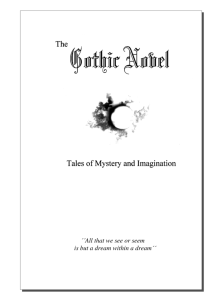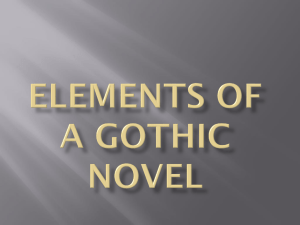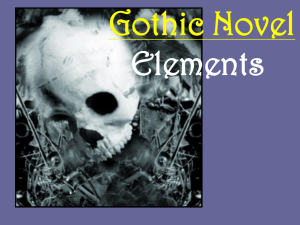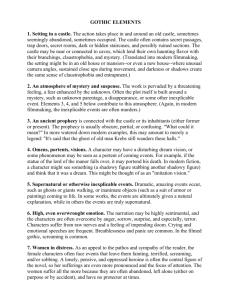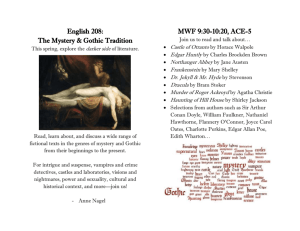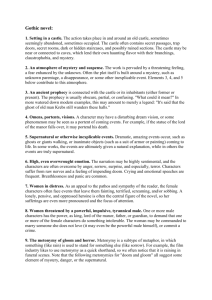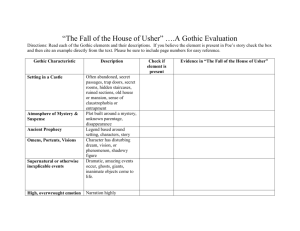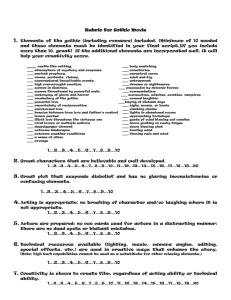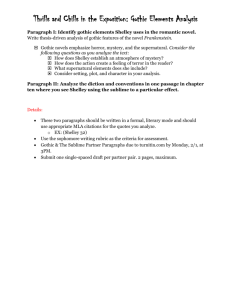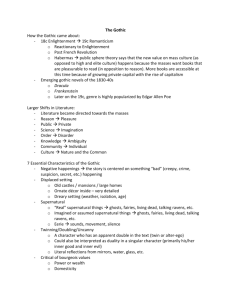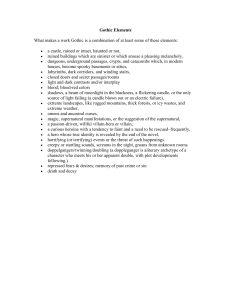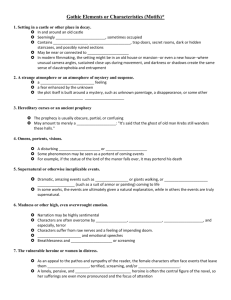It`s all goth to me for PLE 1
advertisement
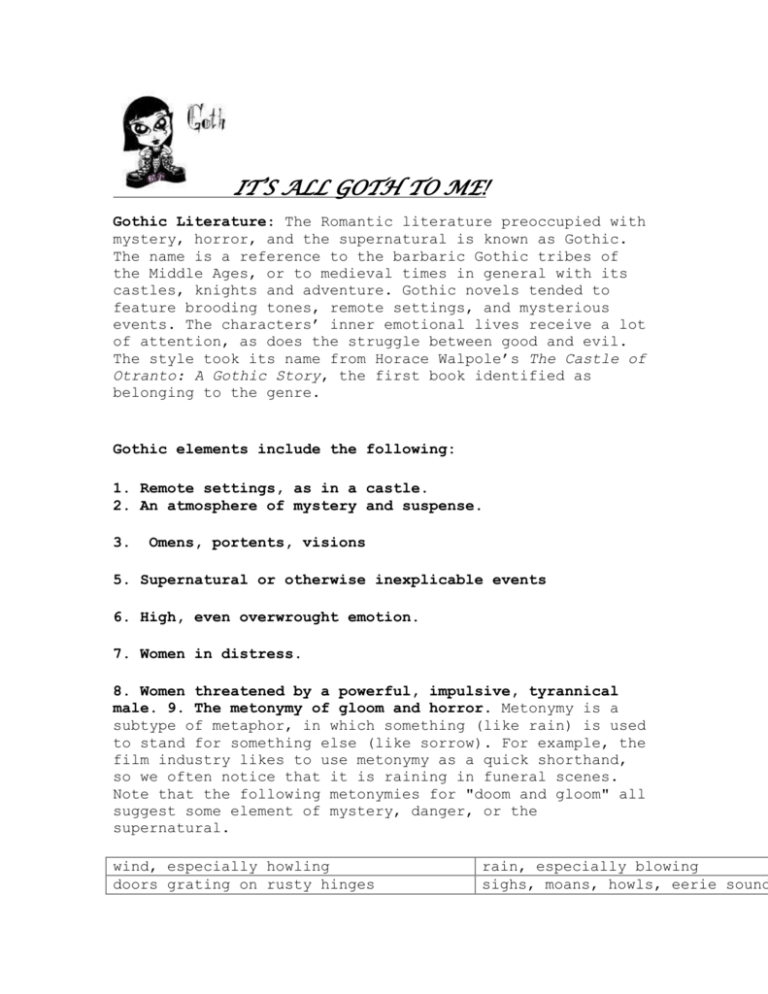
IT’S ALL GOTH TO ME! Gothic Literature: The Romantic literature preoccupied with mystery, horror, and the supernatural is known as Gothic. The name is a reference to the barbaric Gothic tribes of the Middle Ages, or to medieval times in general with its castles, knights and adventure. Gothic novels tended to feature brooding tones, remote settings, and mysterious events. The characters’ inner emotional lives receive a lot of attention, as does the struggle between good and evil. The style took its name from Horace Walpole’s The Castle of Otranto: A Gothic Story, the first book identified as belonging to the genre. Gothic elements include the following: 1. Remote settings, as in a castle. 2. An atmosphere of mystery and suspense. 3. Omens, portents, visions 5. Supernatural or otherwise inexplicable events 6. High, even overwrought emotion. 7. Women in distress. 8. Women threatened by a powerful, impulsive, tyrannical male. 9. The metonymy of gloom and horror. Metonymy is a subtype of metaphor, in which something (like rain) is used to stand for something else (like sorrow). For example, the film industry likes to use metonymy as a quick shorthand, so we often notice that it is raining in funeral scenes. Note that the following metonymies for "doom and gloom" all suggest some element of mystery, danger, or the supernatural. wind, especially howling doors grating on rusty hinges rain, especially blowing sighs, moans, howls, eerie sound footsteps approaching lights in abandoned rooms characters trapped in a room ruins of buildings thunder and lightning clanking chains Gusts of wind blowing out lights Doors suddenly slamming shut baying of distant dogs (or wolve crazed laughter
